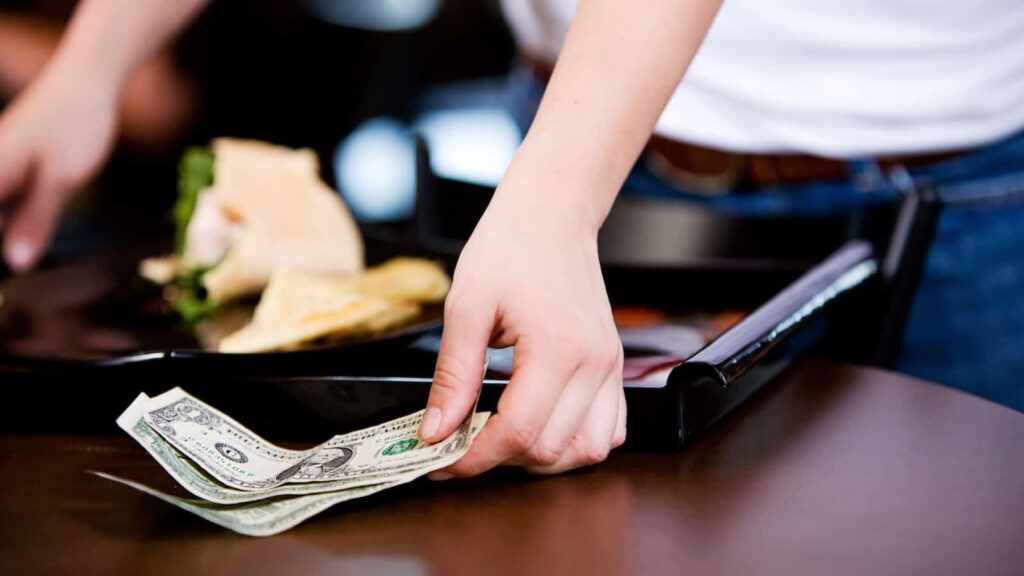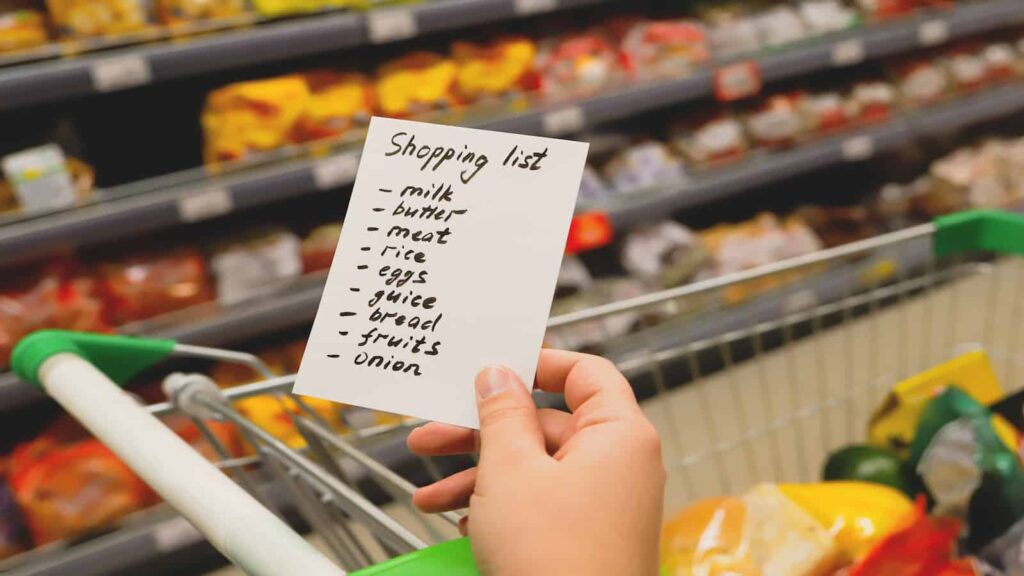20 Ways To Save Money Easily For Your Next Trip
20 Ways To Save Money Easily For Your Next Trip

Saving money doesn’t have to be hard or complicated. There are many simple ways to cut down on your expenses and keep more cash in your pocket. And of course, you can use that extra cash for your next travels!
Whether it’s being smarter about how you shop, finding ways to reduce your bills, or making small changes in your daily habits, these 20 tips can help you save money easily. From grocery shopping online to doing routine health checks, we’ll explore practical steps anyone can take to start saving today. Let’s dive in and find out how you can save more money with little effort!
1. Grocery Shop Online

Shopping for groceries online can help you stick to your budget. Without the distractions of in-store displays, you’re less likely to make impulse buys. Plus, you can easily track how much you’re spending as you add items to your cart, making it simpler to stay within your budget. This method encourages thoughtful purchases and reduces the temptation to buy things you don’t need.
2. Use Cash vs Card

Paying with cash instead of a card can make you more mindful of your spending. When you see the physical money leaving your wallet, it feels more real than just swiping a card. This can help you think twice about unnecessary purchases and stick to buying only what you need. It’s a simple but effective way to control your spending habits.
3. Go Out Less

Cutting back on outings can save a significant amount of money. Whether it’s dining out, going to the movies, or attending events, these activities add up. Try finding enjoyment in free or low-cost activities, like picnics in the park, movie nights at home, or exploring local sights. You’ll find that you can have just as much fun without spending much.
4. Open Free Bank Accounts

Setting up free bank accounts for specific savings goals, like an emergency fund, house deposit, or vacation, can be a smart way to save. By setting up standing orders to these accounts, money is automatically saved before you have a chance to spend it elsewhere. This “out of sight, out of mind” approach ensures you’re consistently saving without having to think about it.
5. Create a Menu and Stick to It

Planning your meals for the week and sticking to a menu can prevent food waste and save money. When you know exactly what you need from the store, you’re less likely to buy extra items that go unused. It also helps in avoiding the temptation to eat out when you already have a meal planned at home.
6. Use Cheap Foods for Your Menu

Incorporating inexpensive ingredients like courgettes, canned tomatoes, and rice into your menu can stretch your food budget further. These versatile and affordable ingredients can be used in a variety of dishes, ensuring you’re eating well without overspending. Plus, these staples can often be bought in bulk, saving even more.
7. Turn Off Lights and Unplug Electronics

Saving energy by turning off lights and unplugging electronics when not in use can lower your electricity bill. Even small changes, like switching off power strips or not leaving devices on standby, can add up to significant savings over time. It’s an easy habit to adopt that benefits both your wallet and the environment.
8. Pick a South-Facing Rental

Choosing a rental that is south-facing can naturally warm your home using sunlight, reducing the need for artificial heating. This can significantly lower your heating costs, especially in colder months. A sunnier living space not only saves money but also provides a brighter, more inviting home environment.
9. Pick a Rental Between Other Apartments

Living in an apartment that is between others or shares walls can help retain heat energy, reducing your heating bill. These units typically lose less heat to the outdoors, staying warmer without the need for constant heating. It’s a smart choice for saving on utilities while staying comfortable.
10. Cancel Unused Subscriptions

Review your subscriptions and cancel any that you don’t use. Many people pay for services they rarely take advantage of, whether it’s streaming platforms, magazines, or gym memberships. By eliminating these unnecessary expenses, you can redirect those funds towards your savings or other financial goals.
11. Cook at Home Instead of Eating Out

Cooking at home is significantly cheaper than eating out. By preparing your meals, you control the ingredients and portions, saving money and often eating healthier. Home-cooked meals can also be a fun way to explore new recipes and improve your cooking skills.
12. Use Cash Back Apps

Cash back apps can provide you with a percentage of your purchase back when you shop. This can add up to substantial savings over time. Whether you’re buying groceries, clothes, or electronics, using these apps is a simple way to get more value out of every purchase.
13. Trade Shopping for Thrifting

Thrifting instead of buying new can save you a lot of money. Second-hand stores often have unique items at a fraction of the cost of new ones. It’s not only a budget-friendly shopping option but also a way to find one-of-a-kind pieces while reducing waste.
14. Share Subscriptions

Sharing subscription services with friends or family members can cut down your entertainment costs. By splitting the cost of streaming services, you can enjoy the same movies, TV shows, and music for less. It’s a practical approach to accessing a wide range of entertainment without overspending.
15. Avoid Late Paying Fees

Making sure you pay your bills on time can save you from unnecessary late fees. These fees can quickly add up, wasting money that could be better spent elsewhere. Setting up automatic payments or reminders can help you avoid these charges and keep your finances in good standing.
16. Review Your Spendings Every 4-6 Months

Regularly reviewing your spending can help you identify areas where you can cut back. Every 4-6 months, take a close look at your expenses to see where adjustments can be made. This helps you stay on track with your budget and adjust as your financial situation changes.
17. Plan Your Outings Together

By planning your outings together, you can save on gas and transportation costs. Combining errands into one trip or carpooling to events can reduce the amount of money you spend on fuel. It’s a straightforward strategy that also saves time.
18. Use a Shopping List

Going to the store with a list can prevent impulse buys, ensuring you only purchase what you need. This disciplined approach to shopping can keep your grocery bills lower and reduce food waste. It’s a simple, effective way to stick to your budget.
19. Avoid Shiny Object Syndrome

Resisting the urge to buy the latest gadgets or trendiest items can save you a lot of money. Focusing on what you truly need rather than what you want in the moment helps prevent overspending on unnecessary items. Remember, being financially savvy isn’t about having the fanciest things but making wise choices with your money.
20. Do Routine Health Checks

Regular health check-ups can prevent larger medical expenses down the road. By catching potential health issues early, you can avoid costly treatments and maintain your well-being. Investing in preventative care is a smart way to save money and stay healthy.
Spend Less: 18 Mistakes People Make When Grocery Shopping

Grocery shopping is a routine task for most households, yet it’s easy to fall into traps that inflate your spending without you even realizing it. From the allure of eye-level products to the temptation of shopping on an empty stomach, there are numerous pitfalls waiting to trip up even the most budget-conscious shopper. This guide identifies 18 common mistakes people make when grocery shopping that can lead to overspending. By recognizing and avoiding these errors, you can streamline your shopping habits to save money and shop smarter.
Read More: Spend Less: 18 Mistakes People Make When Grocery Shopping
15 Mistakes People Make When Decluttering

From holding onto too many items for sentimental reasons to trying to do everything at once, these common pitfalls can hinder your progress. Understanding these mistakes can help you avoid them, making decluttering a more efficient and stress-free process. Let’s explore 15 common decluttering mistakes so you can tackle your next clean-out with confidence and ease.
Read More: 15 Mistakes People Make When Decluttering
15 Decluttering Tips For Your Home

Cleaning up your room or house does more than just make your space look nice. It can also clear out your mind. When you organize and get rid of stuff you don’t need, you make space not just in your home, but in your brain too. This means you can think better and feel less stressed. Plus, with less clutter around, you have more room to enjoy and do the things you really like. So, decluttering isn’t just about cleaning; it’s about making life better.
Read More: 15 Decluttering Tips For Your Home
We are Mary and Eric, the founders of Be Right Back, a blog dedicated to romance around the globe and at home.
We are Mary and Eric, the founders of Be Right Back, a blog dedicated to romance around the globe and at home. With over 10 years of experience in dating and traveling to romantic places, we share our favorite date ideas and romantic destinations to help couples level up their relationships. Having lived in and traveled through the USA, we also share our favourite things to do in the States.
With 70,000 monthly readers and 16,000 followers on social media, Be Right Back is your go-to resource for romantic trip ideas and couple activities at home and abroad.
